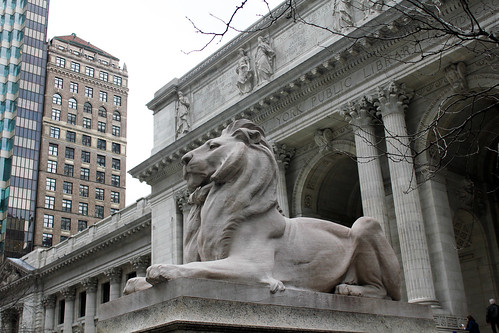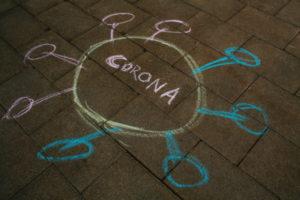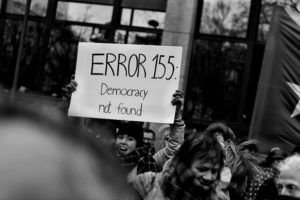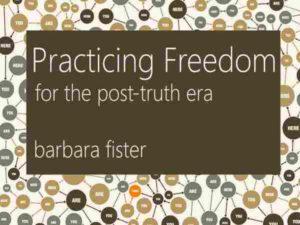 Reposted from Inside Higher Ed; photo courtesy of ktbuffy.
Reposted from Inside Higher Ed; photo courtesy of ktbuffy.
Of all of our cultural institutions, the public library is remarkable. There are few tax-supported services that are used by people of all ages, classes, races, and religions. I can’t think of any public institutions (except perhaps parks) that are as well-loved and widely used as libraries. Nobody has suggested that tax dollars be used for vouchers to support the development of private libraries or that we shouldn’t trust those “government” libraries. Even though the recession following the 2008 crash has led to reduced staff and hours in American libraries, threats of closure are generally met with vigorous community resistance. Visits and check-outs are up significantly over the past ten years, though it has decreased a bit in recent years. Reduced funding seems to be a factor, though the high point was 2009; library use parallels unemployment figures – low unemployment often means fewer people use public libraries. A for-profit company that claims to run libraries more cheaply than local governments currently has contracts to manage only sixteen of over 9,000 public library systems in the U.S. Few public institutions have been so impervious to privatization.
I find it intriguing that the American public library grew out of an era that has many similarities to this one – the last quarter of the 19th century,when large corporations owned by the super-rich had gained the power to shape society and fundamentally change the lives of ordinary people. Continue reading “how libraries became public” →
 During our current pandemic, people seem to crave timely and accurate information more than usual. We want to know how to protect our families and ourselves, we want to understand how a virus actually works, we want to know what will happen. That last one is especially evasive: the virus is new, so we can’t be sure how it will behave; we haven’t lived through a pandemic before; and we haven’t faced a major crisis under our current president. We want to keep up. It feels life or death, and bad information – let’s pack the churches on Easter! It’ll be fine! – tilts toward death.
During our current pandemic, people seem to crave timely and accurate information more than usual. We want to know how to protect our families and ourselves, we want to understand how a virus actually works, we want to know what will happen. That last one is especially evasive: the virus is new, so we can’t be sure how it will behave; we haven’t lived through a pandemic before; and we haven’t faced a major crisis under our current president. We want to keep up. It feels life or death, and bad information – let’s pack the churches on Easter! It’ll be fine! – tilts toward death.
 This coda to
This coda to  Reposted from
Reposted from